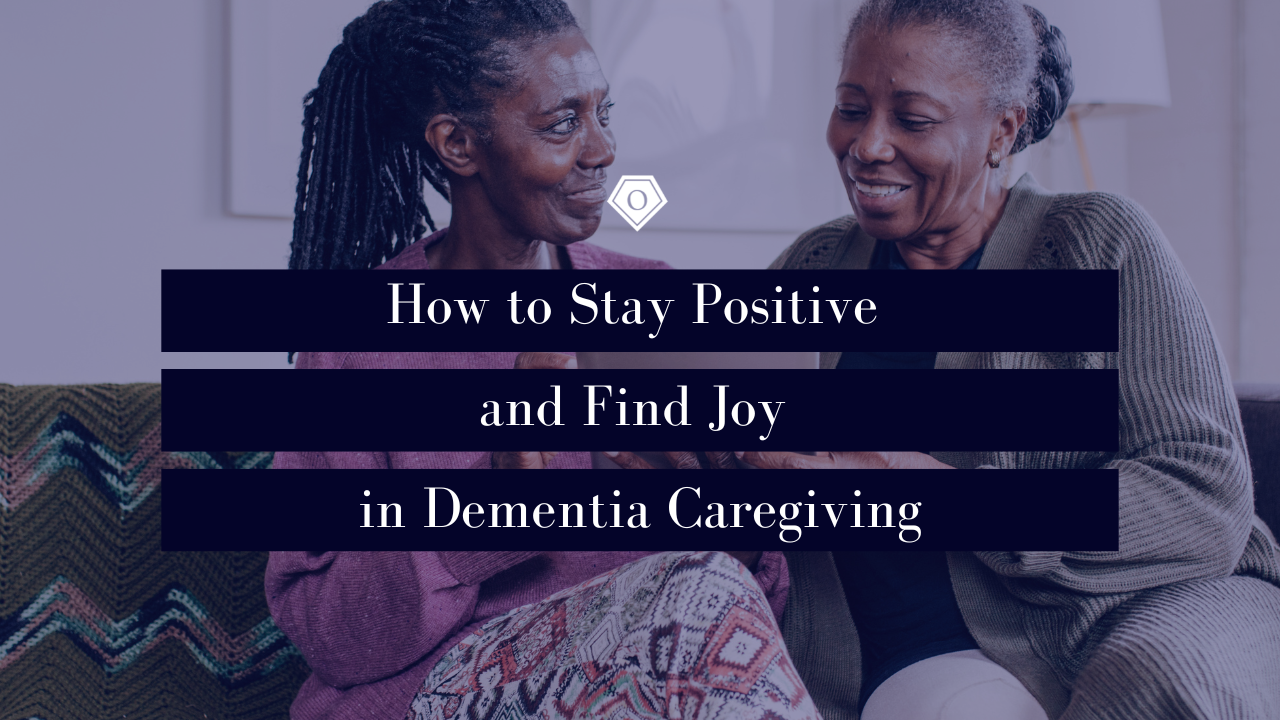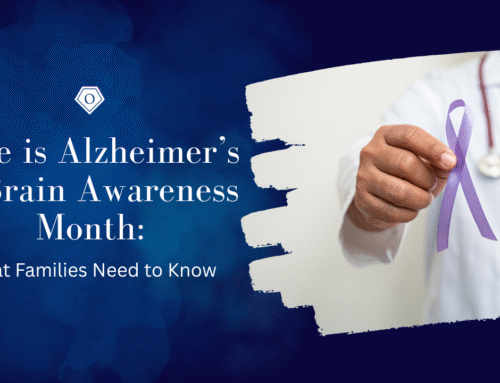Caring for someone with dementia can be one of the most challenging yet rewarding experiences. The emotional, physical, and mental demands can be overwhelming, but amidst these challenges, finding moments of joy and maintaining a positive outlook is essential. Here are some strategies to help you stay positive and find joy in dementia caregiving.
Embrace the Present Moment
Dementia often leads to memory loss and cognitive decline, but it’s important to cherish the present. Focus on the moments you have now. You will mourn what’s lost and worry about the future, but you still have now. Celebrate small victories and cherish simple joys, whether a smile, a shared laugh, or a moment of recognition.
Seek Support
You don’t have to walk alone. Join support groups where you can share experiences and gain insights from others who understand your journey. Connecting with other caregivers can provide emotional support, reduce feelings of isolation, and offer practical advice. Online forums, local community centers, and healthcare providers can help you find the right support network.
Prioritize Self-Care
Taking care of yourself is not a luxury; it’s a necessity. Schedule regular breaks, engage in hobbies, exercise, and ensure you’re getting enough rest. When you care for your well-being, you’re better equipped to care for your loved one. Consider respite care services to give yourself some time off.
Educate Yourself
Understanding dementia can help alleviate some of the fear and uncertainty. Learn about the different stages of dementia, common behaviors, and effective caregiving techniques. Knowledge empowers you to handle situations more confidently and reduces stress. Many organizations offer resources and training for caregivers.
Create a Routine
Dementia patients thrive on routine. Establishing a daily schedule can reduce anxiety for both you and your loved one. Predictable activities provide a sense of security and normalcy. Incorporate enjoyable activities into the routine, like listening to music, walking, or doing puzzles together.
Focus on Communication
Effective communication is key in dementia caregiving. Speak clearly, use simple sentences, and maintain eye contact. Pay attention to non-verbal cues and respond with patience and understanding. A gentle touch or warm smile can sometimes convey more than words.
Find Moments of Joy
Look for joy in the small things. Play their favorite music, look through old photo albums, enjoy a sunny day in the garden, or share a favorite meal. These moments of connection can bring immense happiness to both of you. Remember, joy doesn’t always come from grand gestures but from the simplicity of being together.
Practice Gratitude
Gratitude can significantly impact your outlook on life. Each day, take a moment to reflect on something you’re grateful for. It might be the support of family and friends, a kind gesture from a neighbor, or a moment of clarity from your loved one. Keeping a gratitude journal can be a powerful tool to shift your focus from challenges to blessings.
Celebrate Small Wins
Acknowledge and celebrate the small wins in caregiving. Did your loved one remember your name today? Did they enjoy a meal or show interest in a favorite activity? Celebrate these moments as they come. Recognizing small successes can boost your morale and provide motivation.
Seek Professional Help
If you’re feeling overwhelmed, don’t hesitate to seek professional help. Therapists, counselors, and healthcare providers can offer support and resources to help you manage stress and maintain your mental health. Taking care of your emotional well-being is crucial for long-term caregiving.
Dementia caregiving is undoubtedly challenging, but finding joy and staying positive is possible. By embracing the present, seeking support, prioritizing self-care, and celebrating small victories, you can create a more positive caregiving experience. Remember, asking for help and taking time for yourself is okay.
Your well-being is essential, and finding joy in the journey will make you a more resilient and compassionate caregiver.
Alzheimer’s and Dementia Care
Onyx Home Care’s neurological disorder care is built around a system of support. This service includes skilled home care as well as a unique program that centers on the patient’s interests and stage of illness. Our goal is to see happy family members, patients and caregivers. Often times, caregivers feel remote. Our team includes each person in the home care process to provide inclusive care that helps the patient thrive.






